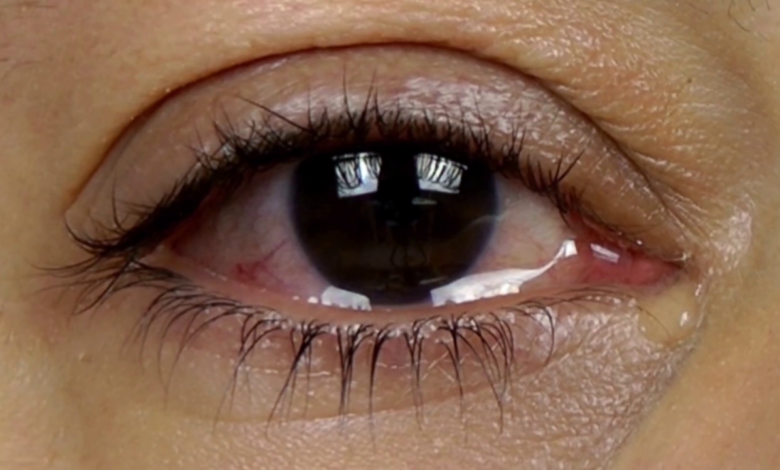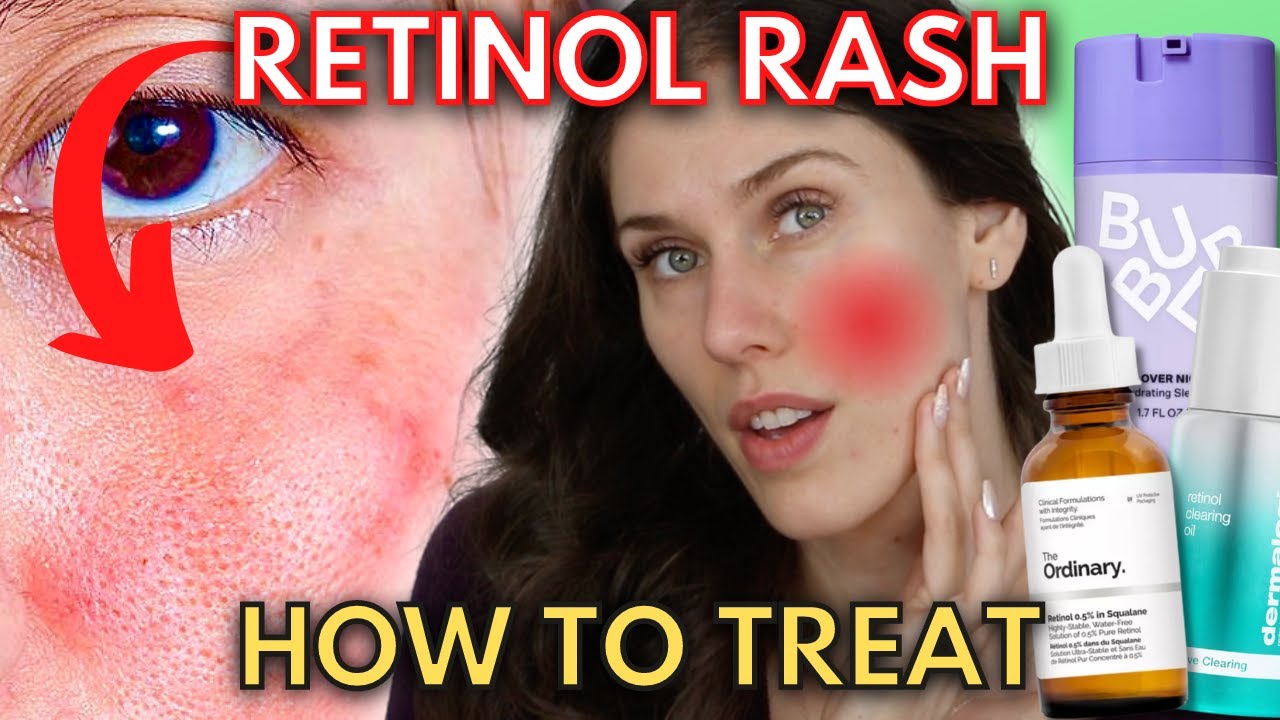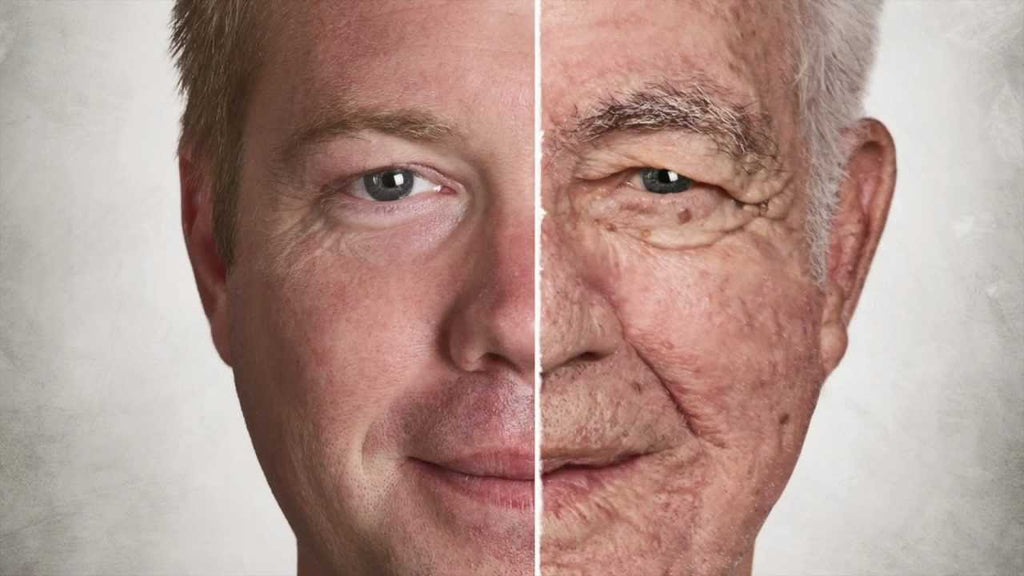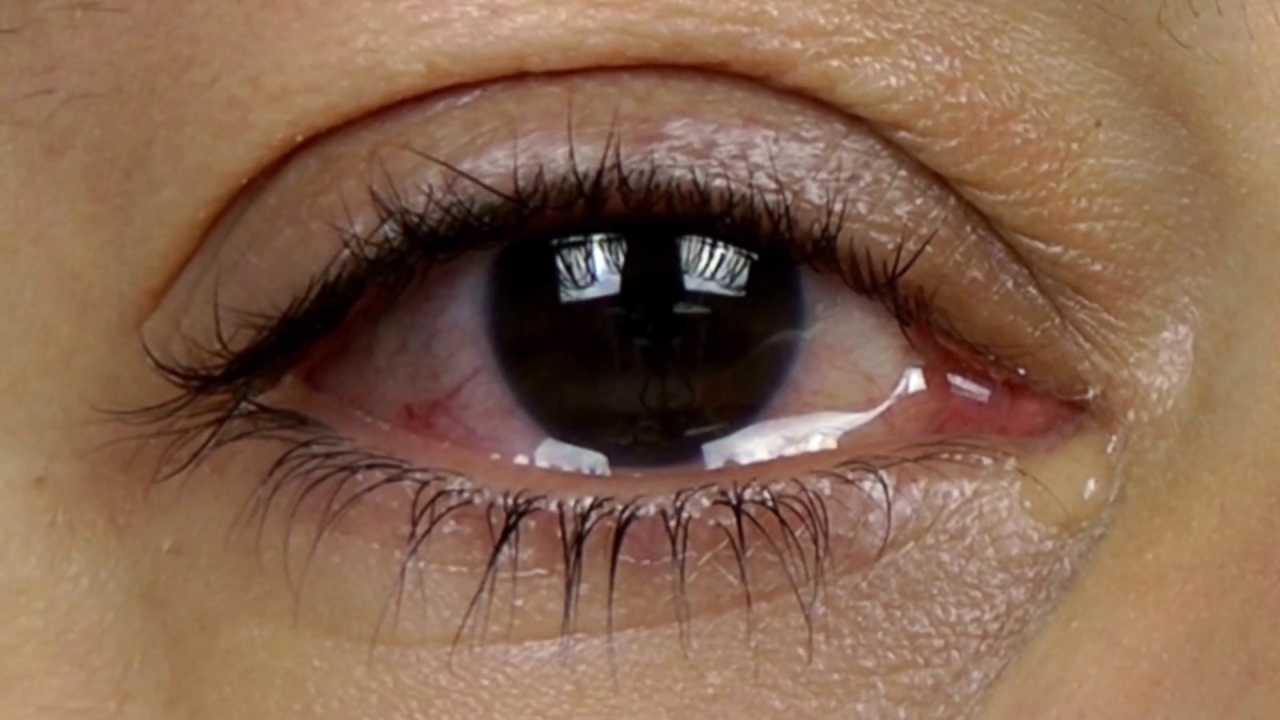
Why Not To Sleep With Mascara On
Why not to sleep with mascara on? It’s a question many of us have probably glossed over, assuming it’s no big deal. But trust me, letting that mascara linger overnight can lead to some serious beauty blunders and even health issues. From irritating infections to damaged lashes, the consequences can far outweigh the convenience of skipping your nightly cleansing routine.
Let’s dive into the gritty details and uncover why removing your mascara before bed is a non-negotiable step in your skincare regimen.
Think of your eyelids as delicate, precious skin. Slumbering with mascara traps bacteria, grime, and makeup residue against this sensitive area, creating a breeding ground for irritations and infections. The mascara itself can clog pores, leading to inflammation and even styes. Plus, imagine the tugging and pulling on your already fragile lashes as you try to remove the dried-on product in the morning – ouch! We’re talking breakage, thinning, and potentially even permanent damage.
So, let’s explore the various reasons why this seemingly small act of skipping your nightly makeup removal can have some pretty significant repercussions.
Eye Irritation and Infection
Leaving mascara on overnight creates a breeding ground for bacteria, potentially leading to various eye problems. The warm, moist environment of your eyelids provides the perfect conditions for microorganisms to multiply, increasing the risk of infection and irritation. This is true regardless of whether you wear waterproof or non-waterproof mascara, although waterproof mascara can be particularly difficult to remove completely, exacerbating the risk.
Bacterial Growth and Infection
The delicate skin around your eyes is highly susceptible to infection. When mascara remains on your lashes and eyelids throughout the night, it traps dirt, oil, and dead skin cells. This mixture, combined with the moisture from your eyes, becomes a perfect incubator for bacteria, such as Staphylococcus aureus and Pseudomonas aeruginosa, common culprits in eye infections. These bacteria can cause inflammation, irritation, and potentially serious infections if left untreated.
The longer the mascara remains on, the greater the chance for bacterial proliferation and subsequent infection.
Types of Eye Irritation from Mascara Residue
Sleeping in mascara can lead to a range of unpleasant eye irritations. Common symptoms include redness, itching, burning, stinging, and a gritty sensation in the eyes. You might also experience swelling of the eyelids (blepharitis) or the formation of small, pus-filled bumps (sty). These irritations can disrupt sleep and impact your daily activities. Persistent irritation can also lead to more severe infections if not addressed promptly.
Specific Eye Infections Linked to Mascara Residue
Several specific eye infections are directly linked to the improper removal of mascara. Blepharitis, a chronic inflammation of the eyelids, is often exacerbated by mascara residue. Styes (hordeolum), which are painful, localized infections of the eyelid glands, can also develop due to bacterial growth fueled by mascara. In more severe cases, conjunctivitis (pinkeye), an inflammation of the conjunctiva (the membrane lining the inside of the eyelid and covering the white part of the eye), can occur.
These infections can cause significant discomfort and require medical attention for treatment.
Risk of Infection: Waterproof vs. Non-Waterproof Mascara
While both waterproof and non-waterproof mascaras pose a risk, waterproof mascara presents a higher risk of infection. Waterproof formulas are designed to be resistant to water and smudging, meaning they are more difficult to remove completely. Incomplete removal leaves behind more residue, providing a greater opportunity for bacterial growth and infection. Always ensure thorough cleansing, even with non-waterproof mascara, to minimize the risk.
Comparison of Symptoms of Common Eye Infections, Why not to sleep with mascara on
| Infection Type | Symptoms | Severity | Treatment |
|---|---|---|---|
| Blepharitis | Redness, itching, burning, flaking eyelids, crusting | Mild to moderate | Warm compresses, eyelid hygiene, antibiotic ointment (if bacterial) |
| Stye (Hordeolum) | Painful, swollen bump on eyelid, redness, pus | Mild to moderate | Warm compresses, sometimes antibiotic ointment or oral antibiotics |
| Conjunctivitis (Pinkeye) | Redness, itching, burning, watery or pus-filled discharge, blurry vision | Mild to severe | Antibiotic or antiviral eye drops or ointment, depending on the cause |
Damage to Eyelashes and Eyelids

Source: ytimg.com
Seriously, ditch the mascara before bed! Sleeping in it is a recipe for irritated eyes and clogged pores, which, let’s face it, nobody wants. Taking care of your skin is crucial, and that includes understanding what your body needs; it’s fascinating to learn more about nutritional differences between the sexes, like in this article on are women and men receptive of different types of food and game changing superfoods for women.
Fueling your body right helps you look and feel your best, just like removing your makeup ensures healthy lashes and vibrant eyes.
Sleeping in your mascara might seem harmless, but it can actually cause significant damage to your delicate eyelashes and eyelids over time. The buildup of mascara, combined with friction against your pillow, creates a perfect storm for irritation and long-term problems. Let’s delve into the specifics.
Eyelash Breakage and Thinning
The constant rubbing of your eyelids against your pillow while wearing mascara can lead to breakage and thinning of your eyelashes. Mascara itself, especially if it’s waterproof or contains fibers, can become stiff and brittle when dry, acting like a tiny, inflexible glue that holds your lashes together. This makes them more susceptible to snapping off at the root or mid-shaft.
Imagine a thin, delicate wire repeatedly bent and twisted – eventually, it will break. This is similar to what happens to your lashes when you sleep in mascara. Over time, this repeated damage can lead to noticeably thinner, sparser lashes, impacting your overall eye appearance.
Clogged Pores and Inflammation
Mascara isn’t just damaging to your lashes; it can also negatively affect your eyelids. The ingredients in mascara, particularly oils, waxes, and pigments, can clog the pores on your eyelids. This clogging prevents the skin from breathing and can lead to inflammation, characterized by redness, swelling, and irritation. The trapped debris can also trigger the development of small bumps or pustules, similar to acne breakouts, further exacerbating the issue.
This inflammation can be uncomfortable and, if left untreated, might even lead to more severe skin conditions.
Examples of Mascara-Related Damage
Imagine an image: A close-up shot reveals several eyelashes broken off unevenly, near the base. Some lashes are noticeably shorter than others, creating a patchy appearance. The skin around the base of the lashes looks slightly red and irritated.Another image: A slightly wider shot shows the entire eyelid. The eyelid is visibly swollen and red, with several small, inflamed bumps clustered near the lash line.
The skin appears rough and textured, indicating clogged pores.
Harmful Mascara Ingredients
Many mascara formulations contain ingredients that can contribute to damage. These include certain polymers that create a stiff, inflexible film, oils and waxes that can clog pores, and even some preservatives that might cause irritation in sensitive individuals. While specific ingredients vary widely across brands, it’s crucial to check the label and be mindful of potentially irritating components.
Some common culprits include parabens, certain fragrances, and some types of waxes.
Safe Mascara Removal Techniques
Properly removing your mascara is essential for minimizing damage. Here are some key tips:
- Use a gentle, oil-based makeup remover specifically designed for eyes.
- Soak a cotton pad with the remover and gently hold it against your closed eyelids for a few seconds to soften the mascara.
- Gently swipe the cotton pad downwards, following the direction of lash growth, to remove the mascara without pulling or tugging.
- Avoid rubbing or scrubbing, as this can damage your lashes and irritate your skin.
- Rinse your eyelids thoroughly with lukewarm water to remove any remaining residue.
Dry Eyes and Discomfort: Why Not To Sleep With Mascara On
Sleeping with mascara on can significantly contribute to dry, irritated eyes and overall discomfort. The delicate skin around your eyes is easily affected by the ingredients in mascara, and leaving it on overnight disrupts the natural processes that keep your eyes lubricated and healthy.Mascara interferes with the natural tear film, a crucial component for maintaining eye health and comfort.
This film consists of three layers: an oily outer layer, a watery middle layer, and a mucous layer closest to the eye. Mascara, particularly waterproof formulas, can disrupt this delicate balance. The thick consistency of mascara can prevent the even distribution of tears across the surface of the eye, leading to dry spots and irritation. Furthermore, mascara particles can absorb the moisture from the tear film, exacerbating dryness.
Waterproof Versus Non-Waterproof Mascara and Eye Dryness
Waterproof mascara, designed to withstand water and sweat, often contains harsher ingredients that are more difficult to remove. These ingredients can cling to the eyelashes and eyelids, creating a barrier that further impedes the natural lubrication of the eyes. This barrier effect is amplified during sleep, as the eyes are closed and the tear film has less opportunity to naturally replenish itself.
Non-waterproof mascara, while easier to remove, can still contribute to dryness if not completely removed before sleep. The residue can still obstruct tear flow and cause minor irritation.
Examples of Mascara Residue Irritating the Eyes During Sleep
Imagine tiny mascara flakes rubbing against your cornea throughout the night as you shift positions. This constant friction can cause significant irritation, leading to a gritty, uncomfortable feeling upon waking. Similarly, clumped mascara can create pressure points on the eyelids, resulting in puffiness and inflammation. Even seemingly insignificant amounts of residue can accumulate and lead to noticeable discomfort.
The eye area is highly sensitive, and even a small amount of foreign material can trigger an inflammatory response.
Proper Eye Makeup Removal
Proper eye makeup removal is crucial for maintaining eye health and preventing discomfort. The following steps ensure thorough cleansing:
- Soak a cotton pad with an oil-based makeup remover or a gentle eye makeup remover specifically designed for sensitive eyes. Oil-based removers are particularly effective at dissolving waterproof mascara. Avoid using harsh chemicals or rubbing alcohol, as these can further irritate the eyes.
- Gently hold the cotton pad against your closed eyelid for a few seconds. This allows the remover to soften and dissolve the mascara, making it easier to remove without excessive rubbing.
- Slowly and gently wipe away the mascara from the lash line, moving from the inner corner of the eye outwards. Avoid pulling or tugging on the delicate skin around your eyes. Use a fresh cotton pad for each eye.
- Repeat steps 2 and 3 until all traces of mascara are removed. Ensure that the cotton pad is clean before proceeding to the next application.
- Rinse your eyes with cool water to remove any remaining makeup remover. This will help to refresh and soothe the eyes.
Allergic Reactions
Sleeping with mascara on significantly increases your risk of developing an allergic reaction. Prolonged contact with the mascara’s ingredients allows more time for them to irritate your delicate eye area, potentially triggering a response even in individuals who don’t usually experience sensitivities. This is because the skin around your eyes is thinner and more permeable than other areas of your skin, making it more susceptible to allergens.Allergic reactions to mascara can manifest in various ways, ranging from mild discomfort to severe inflammation.
The symptoms can vary depending on the individual’s sensitivity and the specific ingredients in the mascara.
Seriously, ditch the mascara before bed! Sleeping in it can irritate your eyes, leading to infections and even clogged pores around your eyelids. It’s all about keeping those delicate areas clean, and this reminds me of the recent news about Monali Thakur being hospitalized after struggling to breathe – check out this article for tips on preventing respiratory diseases: monali thakur hospitalised after struggling to breathe how to prevent respiratory diseases.
Taking care of your respiratory health is just as important as removing your makeup; both are essential for overall well-being!
Symptoms of Allergic Reactions to Mascara
Common symptoms include itching, redness, swelling of the eyelids, and burning or stinging sensations in the eyes. In more severe cases, you might experience watery eyes, crusting around the eyelids, or even a more widespread rash on the face. Some individuals might develop a condition called allergic contact dermatitis, characterized by a persistent itchy rash that can be quite debilitating.
If you notice any of these symptoms after wearing mascara, it’s crucial to remove it immediately and consider seeking advice from an ophthalmologist or dermatologist.
Common Mascara Allergens
Many mascara ingredients can act as allergens. Preservatives, such as formaldehyde and parabens, are frequently cited culprits. Fragrances, often added to enhance the mascara’s scent, are another common irritant. Certain pigments, particularly those containing black carbon, can also trigger allergic responses in sensitive individuals. Furthermore, some individuals react to certain polymers or waxes used to thicken or condition the mascara.
The exact allergen varies from person to person.
Allergic Reactions and Mascara Formulations
The likelihood of an allergic reaction can depend on the type of mascara. Mascaras formulated with natural ingredients or those specifically marketed as hypoallergenic might have a lower risk of causing allergic reactions. However, even “hypoallergenic” products may still contain potential irritants for some individuals. Water-resistant or waterproof mascaras often contain more preservatives and chemicals designed to make them long-lasting, which can increase the risk of irritation and allergic reactions when left on overnight.
Therefore, choosing a gentle, fragrance-free, and hypoallergenic mascara, even when not sleeping with it on, is always a safer bet for those with sensitive eyes.
Seriously, ditch the mascara before bed! Those lashes need to breathe, and sleeping in makeup is a recipe for irritation and clogged pores. It’s all about making smart choices for your body, just like Karishma Mehta’s decision to freeze her eggs, as detailed in this article: karishma mehta gets her eggs frozen know risks associated with egg freezing.
Taking care of your health, whether it’s your skin or your reproductive health, requires proactive choices; so, remember to remove that mascara!
Tips for Individuals with Sensitive Eyes or Known Allergies
Before applying any new mascara, always perform a patch test on a small area of skin (like the inside of your elbow) to check for any adverse reactions.
- Choose mascaras labeled as hypoallergenic and fragrance-free.
- Opt for water-based mascaras instead of waterproof formulas to minimize the use of harsh chemicals.
- Remove your mascara thoroughly every night before bed using a gentle cleanser or makeup remover designed for sensitive eyes.
- If you experience any irritation or allergic reaction, discontinue use immediately and consult a doctor.
- Consider using a mascara specifically designed for sensitive eyes or those with allergies.
Long-Term Effects on Eye Health

Source: shopify.com
Leaving mascara on overnight might seem like a minor inconvenience, but consistently doing so can have significant repercussions for your long-term eye health. The cumulative effect of mascara residue, bacteria, and irritants can lead to a range of problems, far beyond the immediate irritation you might feel in the morning. Understanding these long-term consequences is crucial for maintaining healthy, vibrant eyes.The constant build-up of mascara around your eyelids and lashes creates a breeding ground for bacteria.
This can lead to chronic inflammation, potentially increasing your susceptibility to infections like blepharitis (inflammation of the eyelids) or even more serious conditions. The friction caused by the dried mascara rubbing against your delicate eyelid skin can also contribute to premature aging and the development of fine lines and wrinkles in this sensitive area. Furthermore, the constant irritation can disrupt the natural tear film, leading to long-term dryness and discomfort.
Chronic Inflammation and Infection
Consistent mascara residue can trigger chronic inflammation of the eyelids and surrounding tissues. This persistent inflammation weakens the natural defenses of your eyes, making them more vulnerable to bacterial and fungal infections. Imagine the scenario: every night, you’re essentially coating your eyelids with a film that traps bacteria and irritants. Over time, this leads to a constant low-grade inflammation that can manifest as redness, swelling, itching, and a persistent gritty sensation.
In severe cases, chronic inflammation can lead to conditions like blepharitis, requiring medical intervention. Furthermore, the weakened immune response in the chronically inflamed area makes the eyes more susceptible to more serious infections.
Premature Aging and Wrinkles Around the Eyes
The delicate skin around your eyes is particularly susceptible to damage. The friction from sleeping with mascara on, coupled with the drying effects of the mascara itself, can accelerate the aging process. Imagine the constant rubbing and pulling on the skin as you sleep, further aggravated by the hardened mascara. This repeated stress contributes to the breakdown of collagen and elastin, leading to premature wrinkle formation and sagging skin around the eyes.
This is especially noticeable in the long term, with those who regularly sleep in mascara potentially experiencing more pronounced wrinkles and aging compared to those who diligently remove their makeup.
Dry Eye Syndrome and Discomfort
The constant irritation caused by mascara residue can disrupt the delicate balance of your tear film, leading to chronic dry eye syndrome. The tear film is crucial for lubricating and protecting the surface of your eyes, and when it’s compromised, you experience dryness, burning, itching, and blurry vision. This discomfort can be significantly exacerbated by the presence of mascara, which further obstructs the natural flow of tears and prevents proper lubrication.
Long-term dry eye syndrome can impact your quality of life, leading to significant discomfort and even affecting your vision.
Maintaining Healthy Eyes and Eyelashes
The key to preventing these long-term problems is diligent makeup removal. Before bed, gently cleanse your face with a makeup remover specifically designed for sensitive skin and eyes. Avoid harsh scrubbing, as this can irritate your eyes and damage your eyelashes. Follow up with a gentle cleanser and moisturizer to hydrate the delicate skin around your eyes.
Regularly cleanse your eyelashes with a gentle cleanser to remove any lingering mascara residue and prevent build-up. Hydration is paramount; drinking plenty of water and using a hydrating eye cream can help counteract the drying effects of mascara and maintain the health of your eyes and lashes. Remember, consistent and thorough cleansing is your best defense against the long-term negative effects of sleeping in mascara.
Last Point

Source: cloudfront.net
In short, sleeping in your mascara is a risky gamble. The potential for eye infections, eyelash damage, dry eyes, allergic reactions, and long-term eye health issues far outweigh any perceived convenience. Making a nightly habit of thorough makeup removal is a small price to pay for maintaining healthy, vibrant eyes and lashes. So, ditch the lazy habit and embrace a consistent cleansing routine – your eyes will thank you for it!
FAQ Overview
What’s the difference in risk between waterproof and non-waterproof mascara?
Waterproof mascara is harder to remove and tends to be more drying and irritating, increasing the risk of infection and damage.
Can sleeping in mascara cause permanent damage?
While not always permanent, consistently sleeping in mascara can lead to chronic dryness, eyelash damage, and potentially recurring infections.
What if I accidentally fall asleep with mascara on?
Don’t panic! Just make sure to remove it as soon as you wake up. The occasional mishap won’t cause significant harm, but it shouldn’t become a habit.
What’s the best way to remove mascara?
Use a gentle, oil-based makeup remover and a soft cotton pad. Gently wipe from the lash line outwards, avoiding harsh rubbing.
